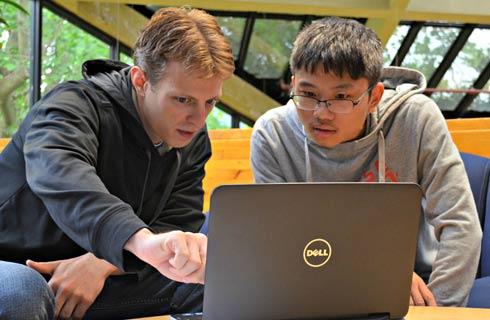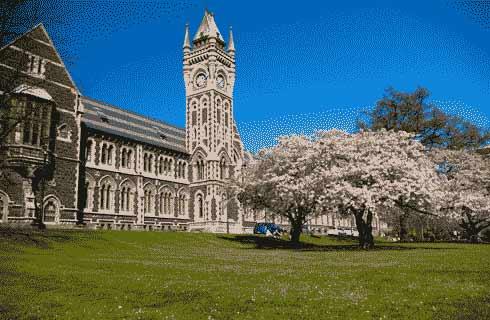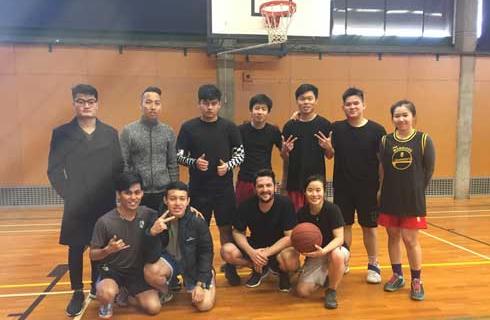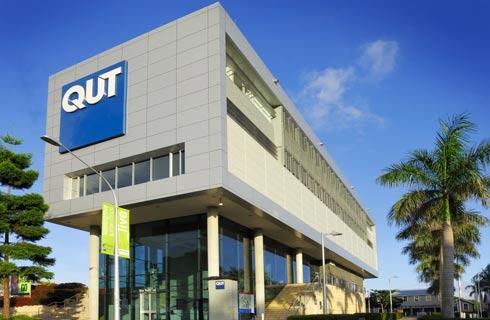- IDP China>
- 课程库>
- 自然科学>
- 自然科学与物理学>
- 数学科学>
- Master of Science in Mathematical Modelling and Self-Learning Systems
数学建模和自学系统理学硕士
Master of Science in Mathematical Modelling and Self-Learning Systems

学历文凭
Masters Degree (Taught)

专业院系

开学时间

课程时长

课程学费

国际学生入学条件
Candidates are expected to have taken courses in mathematics, applied mathematics or statistics at university level, and be familiar with calculus, vectors, matrices and elementary statistics. They are expected to have sufficient background in university-level mathematics as assessed by the course coordinator. In the case of competition for places selection will be made on the basis of primary degree results and/or interview. For online modules, students are advised to have access to a laptop/home computer with an internet connection, modern browser, word processing and spreadsheet software.
Candidates from Grandes Écoles Colleges are also eligible to apply if they are studying a cognate discipline in an ENSEA or EFREI Graduate School and are eligible to enter the final year (M2) of their programme.
All candidates must ultimately be approved by the director of the MSc (Mathematical Modelling and Self-Learning Systems) programme.
IELTS - 6.5 Overall 6.0 Individual Skills (academic version)
TOEFL iBT - 90 Overall (Listening 20, Reading 19, Speaking 21, Writing 20)
IDP—雅思考试联合主办方

雅思考试总分
6.5
- 雅思总分:6.5
- 托福网考总分:90
- 托福笔试总分:160
- 其他语言考试:PTE -Minimum score of 63 with no section score below 59.
CRICOS代码:
申请截止日期: 请与IDP联系 以获取详细信息。
课程简介
Machine learning is an important and newly emerging technique in many areas of applied science such as applied mathematics, engineering, computer science and statistics.<br><br>In particular, machine and self-learning systems are innovative approaches to mathematical modelling which use differential equations at their foundation. A particular strength of this approach is that it ultimately allows you to design applications that can adapt to a changing environment. This is a new and rapidly developing area at the interface between applied mathematics and machine learning.<br><br>The primary aim of our Mathematical Modelling programme at UCC is to provide you with training in the use and development of modern numerical methods and machine-learning software. You will develop and apply new skills to real-world problems using mathematical ideas and techniques together with software tailored for complex networks and self-learning systems. While there is a strong focus on modern applications, our graduates will gain in-demand skills in mathematical modelling, problem-solving, scientific computing, dynamic machine learning, complex networks and communication of mathematical ideas to a non-technical audience.<br>We also teach general hands-on skills such as mathematical typesetting, mathematical writing, desktop and web-based mathematical software development, and the use of computer languages and packages such as C#, R, Python and TensorFlow – all of which are highly prized by employers in this field.
相关申请
 预科
预科 奖学金
奖学金 实习机会
实习机会 在校学习
在校学习 跨境学习
跨境学习 校园授课-线上开始
校园授课-线上开始 在线/远程学习
在线/远程学习
开学时间&学费
学费信息仅供参考,请与IDP联系以获取详细信息
| 开学时间 | 时长 | 学费 | 地点 |
|---|---|---|---|
| 暂无 | 暂无 | 暂无 | 暂无 |
学校排名

世界排名301
数据源:
泰晤士高等教育世界大学排名
关于爱尔兰国立科克大学

UCC是一所世界领先的大学,以提供优秀的授课型学习项目和支持全球重要的研究社区而倍感自豪。大学的校风以促进思想多样性、知识交流和职业抱负为中心。大学与世界各地的数百所其他机构合作,拥有来自世界各地的数千名国际学生。UCC提供的16个学科领域在全球排行榜名列前茅,曾五次荣获星期日泰晤士报授予的''爱尔兰年度大学''称号,名列全球大学前2%。科克城是一座无与伦比的学习和发展之城。该城最近被命名为''联合国教科文组织学习之城'',以表彰其对卓越学习的承诺,科克是一个坐落在壮丽自然景观之中的文化中心和商业中心。UCC与爱尔兰其他地区、英国和欧洲有着奇妙的联系,无论对个人、学术或专业机构而言,UCC都是探索欧洲大陆的最佳场所。自1845年建校以来,UCC从未停止成长、发展和创新的脚步。除了卓越的研究、可持续发展的校园和全新的校园设施,大学还是来自世界各地的独特教职员工和学生社区之家。就读UCC就意味着可尽享欧洲最友好和最生气勃勃城市之生活。
本校相关课程

当代宗教文学硕士
学历文凭
Masters Degree (Taught)
开学日期
课程费用总额


文学士(荣誉)-应用心理学
学历文凭
Bachelor Degree with Honours
开学日期
课程费用总额


文学士(荣誉)
学历文凭
Bachelor Degree with Honours
开学日期
课程费用总额


犯罪学硕士
学历文凭
Masters Degree (Taught)
开学日期
课程费用总额


文学士(荣誉)-艺术(国际)
学历文凭
Bachelor Degree with Honours
开学日期
课程费用总额


文学士(荣誉)-艺术-音乐
学历文凭
Bachelor Degree with Honours
开学日期
课程费用总额

其他相关课程

数学高级(荣誉)学士学位
 伍伦贡大学
伍伦贡大学泰晤士高等教育世界大学排名:247
学历文凭
Bachelor Degree with Honours
开学日期
课程费用总额


数学教育学士学位(院长学者)
 伍伦贡大学
伍伦贡大学泰晤士高等教育世界大学排名:247
学历文凭
Bachelor Degree
开学日期
课程费用总额


统计学士(荣誉学位)
 澳大利亚国立大学
澳大利亚国立大学学历文凭
Bachelor Degree with Honours
开学日期
课程费用总额


统计研究硕士
 南澳大学
南澳大学学历文凭
Masters Degree (Research)
开学日期
课程费用总额


商科学士/理学学士(高级数学)(荣誉学位)
 悉尼新南威尔士大学
悉尼新南威尔士大学学历文凭
Dual Degree
开学日期
课程费用总额


理学硕士(精算和金融科学)
 科廷大学
科廷大学泰晤士高等教育世界大学排名:256
学历文凭
Masters Degree (Coursework)
开学日期
课程费用总额










 爱尔兰
爱尔兰